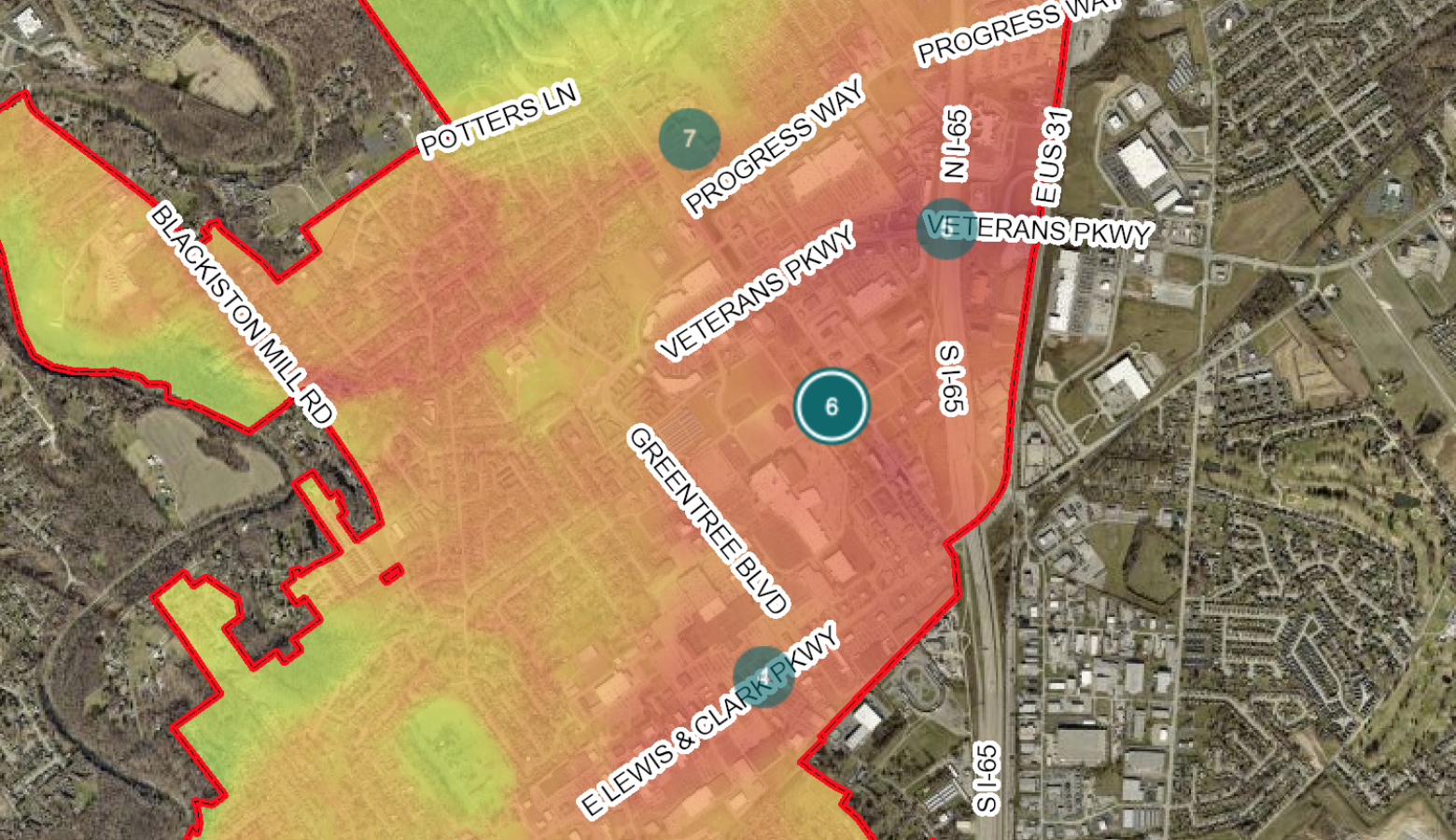Clarksville, Richmond develop plans to protect residents from extreme heat

The cities of Clarksville and Richmond worked with Indiana University last year to find out what parts of those communities get the hottest and who is most vulnerable to extreme heat. Now they’ve come up with plans to “beat the heat.”
Climate change is expected to make heat waves longer and more intense. IU researchers said cooling cities down can save lives.
Lucy Mellen is the heat relief coordinator for the city of Richmond. She said researchers found that the hottest parts of the city were 12 degrees hotter than the coolest ones.
“You’re seeing some people experience temperatures, you know, potentially in the low or high 90s and then other individuals seeing temperatures possibly in the high 70s — which is an entirely different experience,” she said.
Hard surfaces like pavement and commercial buildings have a way of absorbing heat — and that can make it harder to cool down neighborhoods nearby.
Clarksville and Richmond hope to implement some cooling strategies right away.
“People in Clarksville and Richmond can sign up to receive heat alerts in both communities. We’re also, about in the next week or two, getting cool kits out. So these are supplies, specifically for people who are experiencing homelessness,” said Bronte Murrell, the heat relief coordinator for the city of Clarksville.
Both cities also plan to start tree planting programs as early as the fall. Mellen said Richmond also hopes to set up a volunteer program to help maintain those trees.
Join the conversation and sign up for the Indiana Two-Way. Text “Indiana” to 73224. Your comments and questions in response to our weekly text help us find the answers you need on statewide issues, including this series on climate change and solutions.
Dana Habeeb is an assistant professor at Indiana University in the Department of Informatics. She said one of the most important strategies to protect people from extreme heat is to figure out how to communicate with the most vulnerable communities and make sure they know who to call for help.
Habeeb said cities might also empower residents to check-in with each other — which can be really effective during extreme heat.
“Just going and knocking on your neighbor’s door to make sure that they’re OK,” Habeeb said. “That’s something that you can’t just change and create overnight — it’s something that you really need to really strengthen and support over a long time.”
Other strategies — like designing more sustainable buildings — could take more time, but Habeeb and Mellen said having a heat management plan will help cities to keep these things top of mind.
Learn more about how heat affects Clarksville here and Richmond here. Though Clarksville’s plan has been adopted, Richmond’s has not been finalized yet.
Contact reporter Rebecca at rthiele@iu.edu or follow her on Twitter at @beckythiele.

